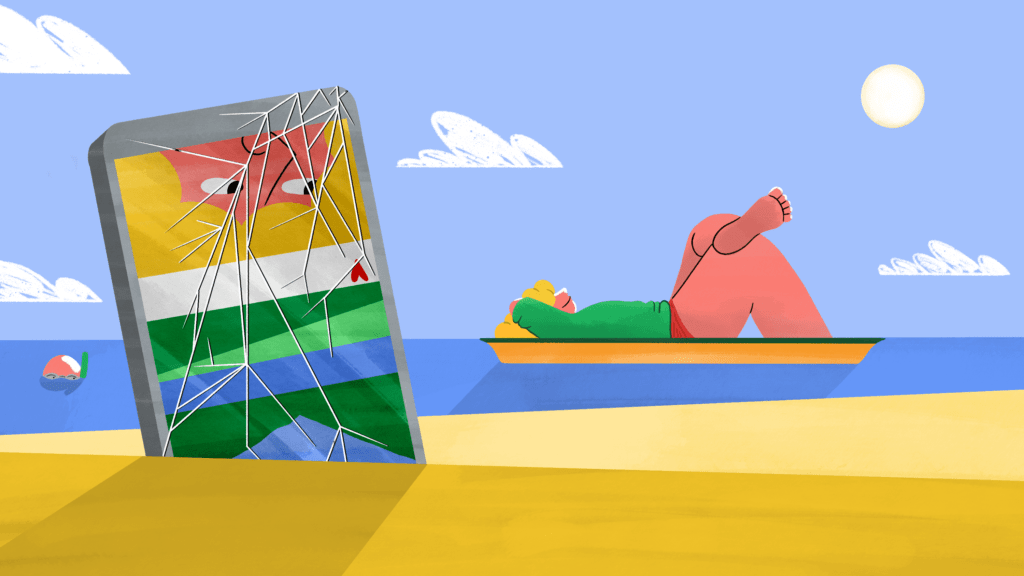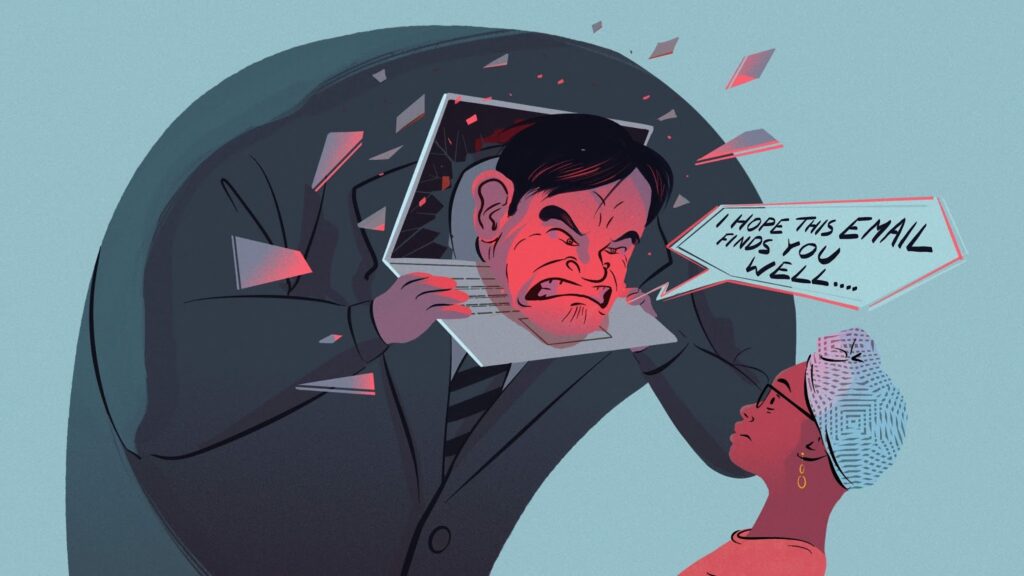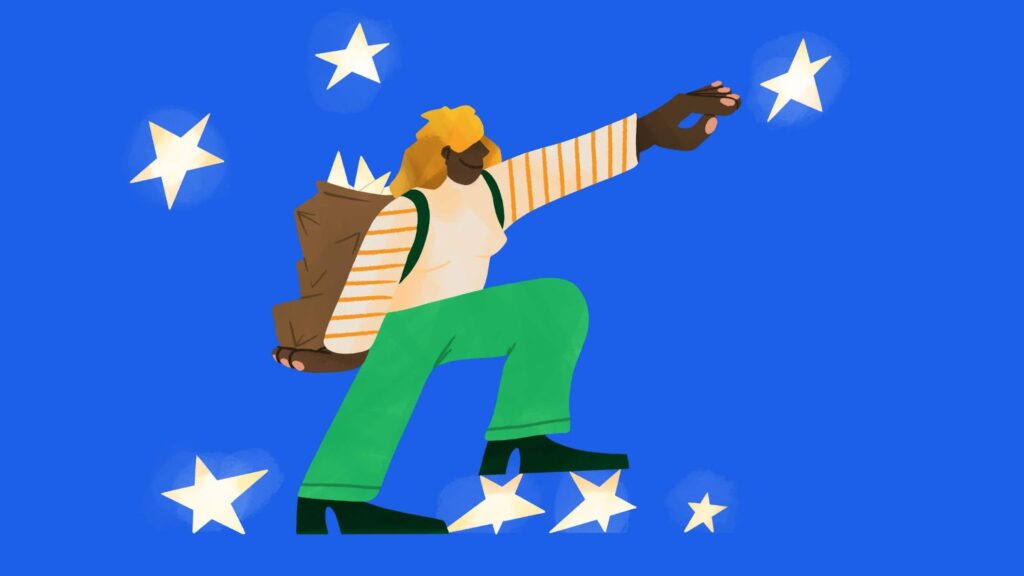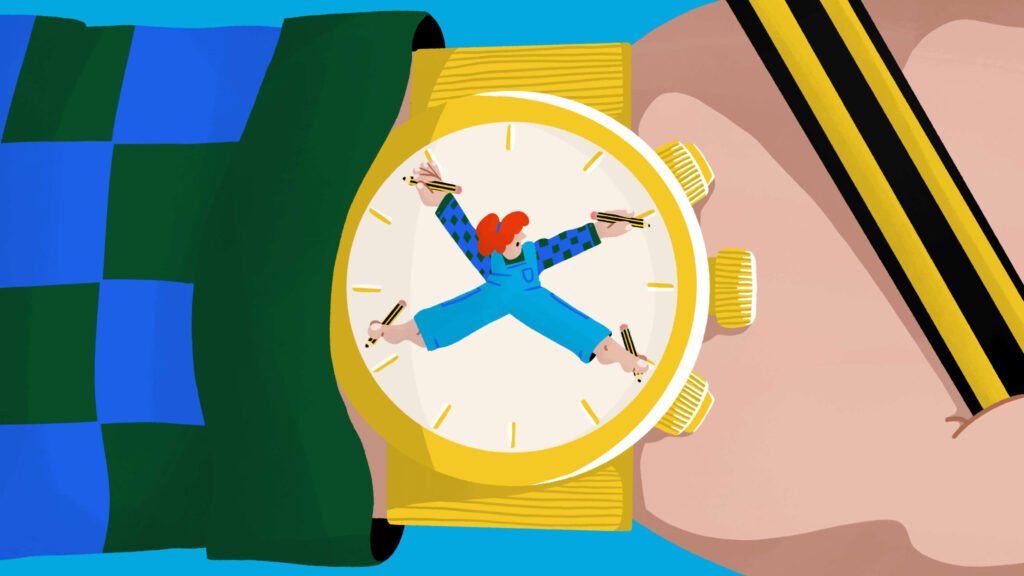Social media gets a tough rap, no? What started as the place where we innocently uploaded photos (are you even a millennial if your Facebook profile isn’t home to a slew of albums with names such as ‘NiGhT oUt @ TIGER! – Feb 15 2007’?) and kept in touch with old school friends is now completely different to what we signed up to all those years ago.
Fast-forward to 2020 and we’re all such pros that we watch programmes like Emily In Paris and are entertained more by her earnest chat about ‘engagement’ and ‘strategy’ than by the actal storylines; the most unlikely thing about the show is neither the couture wardrobes nor the unlikely adventures of Emily but rather her rocketing follower count off the back of a statue shot with #chiselledabs and a grainy pain au chocolate Boomerang. Merde.
Over the years, what began as our very own ‘corner of the internet’ has drastically expanded. Social media is now an as-wide-as-you-like landscape, cultivated by you. We scroll, we upload, we compare; we see what our industry rivals are doing, we’re dictated to by algorithms and ever-evolving technology, and we strive, constantly, to present ourselves in the best possible light.
Our social platforms represent huge swathes of our lives: they’re how we connect, how we’re influenced, how we’re researched ahead of job interviews… And how we as freelancers could potentially attract that next potential client. Follower counts are worn like a badge of honour, those covetable blue ticks like cornflower crowns, and we beseech others to ‘like’, ‘follow’, ‘swipe’, ‘subscribe’…
As well as offering shop window showcases for our personal brands, having a presence on social media can also open up the potential for creating your own luck, too. Following influential figures within your industry and keeping eyes peeled for opportunities – such as sharing expertise via a ‘#journorequest’ spotted on Twitter or bagging a last minute holiday-cover contract – are the type that can be found only on a social platform, where a need for speed and a quickly fired response is crucial.
Of course, this much accessibility and activity comes with a price. As Netflix’s The Social Dilemma suggested recently, many of us are exhausted by the all-consuming prospect of having our entire worlds – and beyond – instantly accessible at any given moment. A heady cocktail of need-for-output, comparison and those infamous dopamine hits can all contribute towards burnout, overwhelm and inadequacy; a YouGov survey shared over summer 2020 revealed that over a third of Brits (34%) think social media has a negative impact on people’s mental health.
Yet still, we lay ourselves bare – and in doing so, we also risk attracting the attention of the lesser-spotted troll, too. Whatever your trade, the acerbic tongue of the keyboard warrior can hurt, with their pixelated insults seeping their way through even the steeliest suits of armour, finding chinks of perceived weakness and burrowing in.
“It can be difficult,” one photographer, who decided to quit Instagram and focus on other avenues, tells me. “Ninety-nine amazing comments on a post would be completely outweighed by one or two spiteful remarks. It’s different when it’s practical criticism but it was just plain insulting: it was like having someone knock on your door just to shout in your face that they don’t like you.”
Whilst logging off might feel like the only option to escape unwanted feedback, don’t underestimate the power of the block button. “The larger your following, the more people that are likely to have their own opinion on what you post,” says NLP Coach and Trainer, Rebecca Lockwood. “The best way to deal with it is simply to delete and block. If you had a shop and someone came in and acted in that way, you’d ask them to leave – and the same applies for online.”
So the question is this: is it possible to be a successful freelancer and not use social media? Is it possible to reach a point in your career – whether it’s early-on or once you’re more established – where you can log-off from social media, be it permanently or temporarily, without the risk of detriment to your career? If social media drains you – be it emotionally or of time – can you just log off?
Of course, the answer to that question is a resounding ‘yes’: no one is forcing you to install apps or create profiles or share posts. If you’re able to turn away from platforms and profiles and are confident it won’t affect incoming work prospects, then how difficult can it be? (Not very, according to the 59% of Americans who revealed in the Pew Research Center’s 2018 Social Media Use Report that they didn’t think it would be ‘hard’ to quit their social platforms…)
Obviously it’s not quite that simple in reality and depends very much on the strings that are on your finely-tuned freelance bow. For example, if you’ve got a strong following and are considered an influencer, you could risk losing the potential revenue streams that #sponcon can generate for you. Equally, if you use Twitter to find editors who are looking to receive pitches or to talk to journalists about your new product launch, you might feel you’re missing out if you remove yourself from the app.
Don’t be put off though. Even just trimming your social output down to one chosen platform that you can excel in could prove beneficial. Choosing one to focus on and pour your energy into – rather than spreading yourself thin over the full role-call – could reap dividends.
Many of the freelancers I spoke to whilst writing this piece swore by LinkedIn as the way to go; “you can use it to follow industry groups and network with like-minded people or those working in a similar industry,” says content strategist Jessica Hodkinson. “You might come across someone who can refer you for a freelance role or recommend you for a gig. Use it to post updates about your achievements and share your knowledge.”
PR & marketing consultant Louise Burke agrees; “LinkedIn is the silver bullet for freelancers,” she says. “It’s easy to target your ideal clients and showcase your expertise. If you’re looking for more interaction with your audience, Facebook is a better option. Whichever platform you use, consistency is key.”
There are many benefits to having an active social presence, even if just on the one platform that best suits your field. You can keep an eye on the work of peers and a finger on the pulse of news that you could tap into as they unfold on timelines. From a flipped perspective, potential clients might check out your social followings to get an idea of what you’ve done in the past and how you present yourself online.
“I’ve had clients contact me previously through Instagram,” explains one anonymous freelancer, who runs a photography business. “That’s brilliant, of course – but do I hate that I’m reliant on an app because of customer FOMO? Yes. It reached a head during lockdown when I realised social media was grinding me down and stifling my creativity. In June, I asked my partner to change my password, meaning I still had ‘live’ profiles but could no longer access them. I changed my bio first to explain I was taking some time off the app but could be contacted via my email. Bit of a best of both, right?”
How to find a balance you’re happy with
Set limits & goals
If you use social platforms on your phone but are conscious of the time you spend each day scrolling, use apps that will restrict your usage (such as Screentime on iOS or Android’s Digital Wellbeing). Take things one step further by removing all apps from your phone and using them on desktop only instead, and be organised with your usage. “Write a checklist of the tasks you want to complete when using your social media,” suggests Rebecca. “For example, if you’re using Twitter for prospecting, jot down what you want to achieve on it before you log off again.”
Don’t be afraid to control comments
If your social presence opens you up to unwanted criticism from faceless followers, don’t be put off. Instead, explore the different settings that each social platform offers, including replies from followers only or switching off comments entirely.
Consider external help
Depending on the size of your freelance business, you might want to consider hiring external help to manage your social presence, allowing you all the benefits of an expertly maintained profile without the need to spend time online yourself.




